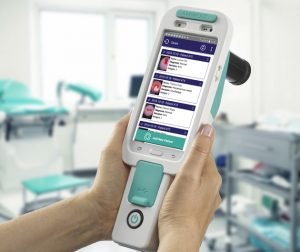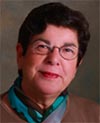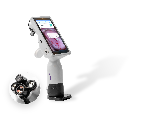
Nurse practitioners are well placed to perform colposcopy. The depth of relationship typically created between NPs and their patients can help put patients at ease about a procedure that can be daunting. NPs generally have more time in each appointment than physicians, letting them create a deeper rapport with their patients and giving them the time to address questions in detail. But for many NPs there are still many barriers to taking this additional training despite the potential benefit to their patients and professional development. We explore some of these challenges and how they can be overcome.
Read more about the history of nurse practitioners in the colposcopy field>>
Time commitment of colposcopy training for nurse practitioners
There is a considerable time commitment required in colposcopy training. In addition to attending the initial didactic training, further mentorship with supervised procedures is required.
In-person attendance of didactic components of training typically requires 2-3 days plus travel time. Nurse practitioners, already occupied with hectic schedules, often do not have the extra time available to leave their own clinic and complete colposcopy certification programs. The additional time needed to complete the necessary preceptorship component places an even greater burden on their day-to-day activities.
High financial cost
There is a double financial burden on colposcopy training; the cost of the training course itself and the parallel cost of travel to training. Colposcopy training courses typically take place only in major cities. Nurses will need to not only cover the cost of the training programs, but also pay for travel expenses like transportation and accommodations while attending the courses, plus travel to later mentorship sessions, including the loss of revenue from the time that would have been spent seeing patients.
Although some courses do offer sponsorship, and not all nurses qualify. Many clinics lack adequate funding to sponsor nurses to receive colposcopy training. In some cases, nurse practitioners might have to pay out of their own pocket for expenses such as airfare and a hotel room.
The challenge of preceptorship
Completing colposcopy training requires a number of supervised colposcopy procedures together with a recognized colposcopy mentor. This can be one of the biggest challenges facing nurse practitioners wanting to train in colposcopy. While some NPs in large healthcare networks have easier access to a qualified mentor, for nurse practitioners in smaller clinics or rural networks it can be difficult to find a suitable mentor.
Not only is locating a willing preceptor a potential challenge, attending the sessions themselves can present a considerable burden. The financial and time costs of traveling to supervised colposcopy procedures can be huge.
Additionally, few practitioners have colposcopy as their exclusive practice, meaning that the opportunity to complete the necessary supervised procedures might be spread out over multiple weeks or even months. This can mean the trainee NP undertaking multiple visits in order to complete their training.
Training courses can be limited
There are a number of ways that a clinician can train in colposcopy. For many, the ASCCP Colposcopy Mentorship Program (CMP) is considered the flagship colposcopy training program. Although there are other training courses with the USA, such as the Drexel University College of Nursing and Health Professionals Colposcopy training for Women’s Health Practitioners.
At times the demand for the training program is greater than the available places. Often these courses may sell out as they can only accept a select number of participants. This leaves some NPs without a place on the next available course even once they have found funding and a potential mentor.
Some online training programs are available, predominantly from European training programs. However, as terminology and practice differ between the USA and Europe, it can lead to confusion for US-based NPs. In addition, these courses usually do not include the mentorship component required for practicing colposcopy in the US.
Telecolposcopy – extending access to colposcopy training for nurse practitioners
Recent technological advances have opened up a range of solutions to the challenges that were limiting the access of nurse practitioners to colposcopy training. While the rise of telehealth options has enhanced many areas of healthcare, in the field of colposcopy training they are game-changing. Telecolposcopy, the use of digital means to connect expert colposcopists to clinicians at the point of care, is extending colposcopy services beyond the physical boundaries of specific clinics.
 Using the EVA System digital colposcope, it is now possible for expert mentors to provide colposcopy preceptorship via screen-sharing and video conferencing. This means that it is no longer necessary for trainee nurse practitioners to travel away from their home clinic to receive mentorship, drastically cutting the financial and time cost of mentorship.
Using the EVA System digital colposcope, it is now possible for expert mentors to provide colposcopy preceptorship via screen-sharing and video conferencing. This means that it is no longer necessary for trainee nurse practitioners to travel away from their home clinic to receive mentorship, drastically cutting the financial and time cost of mentorship.
A recent study showed that remote colposcopy preceptorship not only provided the same level of training as in-person supervision, but patients also preferred the telehealth option.
FPA Women’s Health is using telecolposcopy with the EVA System to train new colposcopy practitioners in its 25 clinics throughout California.
Former FPA Head of Nursing, Bonnie Betts explained, “I’m not sitting side by side with the trainee, but I might as well be. I can talk her through the process. Hear her comments as she performs the colposcopy and make any suggestions of my own.”
Rural areas, in particular, benefit from EVA training. Rather than traveling across the country to participate, nurse practitioners can complete courses remotely.
Online didactic training
In another move to leverage digital technology to ease the burden of colposcopy training, some large healthcare networks, have started alternative training programs so that more nurses can participate. Renowned clinical nurse practitioner and longtime colposcopy trainer, Dr. Mary Rubin, RN-C, Ph.D., CRNP, FAANP, has developed an online didactic colposcopy training program.

Dr. Mary Rubin
Rather than traveling across the country to attend a course in-person, nurses can participate in online lectures and webinars. Dr. Rubin covers the didactic portion of training via live video conferencing in small groups, with the practical mentorship being carried out using the EVA System telecolposcopy feature. In this way, nurse practitioners in participating networks are able to complete the entire training process without leaving their local clinic.
As more nurse practitioners train in colposcopy, so too will the number of patients with access to the exams increase. This will result in potentially life-changing care and the ability to save lives by giving patients more access to needed exams.
See how your clinic can use telehealth solutions to facilitate more NP training >>








